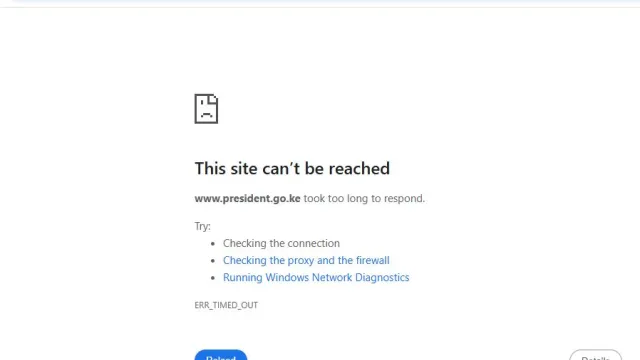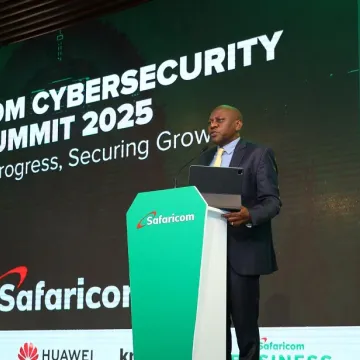Presidency, key ministries hit in massive cyber strike

A screengrab of the presidency website: president.go.ke. Thousands of users seeking information from key government ministries including Interior, Education and Health have been denied access following a cyberattack on Monday even as the country continues to grapple with acute shortage of cybersecurity experts.
Thousands of users seeking information from key government ministries including Interior, Education and Health have been denied access following a cyberattack on Monday even as the country continues to grapple with acute shortage of cybersecurity experts.
Users accessing affected sites were met with various messages including "Access denied by PCP", "We will rise again", "White power worldwide" and "14:88 Heil Hitler" when they tried logging into President.go.ke, Nairobi.go.ke as well as the ministries of Interior, ICT, Water, and Tourism.
The nature of cyberattack appeared to displace ordinary and legitimate content with unauthorized content.
The Monday attack comes just days after the PS, Information, Communication and Digital Economy, Eng. John Tanui revealed that Kenya experienced 842 million cyber threats between July and September 2025.
These attacks were targeted at different players across the industry including banks, hospitals, SMEs, schools and individual gadgets.
In the three months to March 2025, the National Kenya Computer Incident Response Team Coordination Centre (National KE-CIRT/CC) statistics show that the country recorded over 2.5 billion cyber threats, marking a significant increase from the previous quarter.
Attacks such as phishing scams, ransomware and large-scale system disruptions continue to target sectors including finance, healthcare, energy and government services.
“Cybercrime is a challenge that no single institution can solve alone. As more Kenyans embrace digital tools, the responsibility to keep them safe becomes greater. This summit provides a platform for government, private sector, and civil society to collaborate and ensure that Kenya’s digital growth is anchored on trust and resilience” said Peter Ndegwa, Safaricom CEO during the Cybersecurity Summit 2025 held last week.
Industry statistics shows that Kenya requires about 40,000 to 50,000 cybersecurity experts but it currently has roughly 1,700 certified experts, exposing 96 percent skills gap, a challenge that leaves government entities and organizations very vulnerable.
The economic toll of affected organizations is always staggering, often featuring as costs related to system recovery, lost opportunities due to system interruptions, regulatory penalties, and the erosion of consumer trust.




